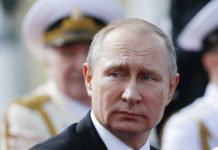Winners and losers: On Pakistan democracy, Imran Khan and Nawaz Sharif
Elections in Pakistan go according to the script written by the Army
Mr. Khan was forced out of power in April 2022 after falling out with the military establishment. He accused the military and the United States of conspiring to oust him and, at a rally, waved a paper, purportedly a diplomatic cable sent by the then Pakistani Ambassador to the U.S. in 2022, as evidence, which came back to hit him as a violation of the Official Secrets Act. His lawyers complain that they were replaced by state attorneys in the middle of the case and that Mr. Khan was not allowed to give a proper defence in the ‘Cipher’ trial, which took place inside a jail. His arrest in May led to large-scale protests. But since then, the authorities have unleashed a systematic campaign to weaken the PTI — many of its leaders are in jail, while several others have left under pressure or are on the run. Recently, a court barred the party from using its iconic cricket bat symbol in ballots. Many PTI workers are contesting as independents. While Mr. Khan is in jail and his party is in tatters under state repression, Mr. Sharif seems to be enjoying the support of the invisible power centre in the electoral arena, which makes the elections look like a fixed match. Mr. Sharif might make a political comeback, but the real winner in the unfolding developments in Pakistan, which is grappling with enormous economic challenges, is the military and the real loser, the country’s democracy.

















The back-to-back jail sentences former Pakistani Prime Minister Imran Khan was handed out in two different cases just a week before the February 8 parliamentary elections, show how roles have been reversed in Pakistan’s convoluted political space dominated by the shadow hands of the establishment. In 2018, when Mr. Khan’s Pakistan Tehreek-e-Insaf (PTI) was elected to power, the Opposition Pakistan Muslim League-Nawaz (PML-N) and the Pakistan People’s Party had accused the military of electoral rigging in favour of the former cricket star, who was the preferred choice of the generals. A year earlier, Nawaz Sharif, the PML-N leader, had to resign as Prime Minister over the Panama Papers allegations and later go into exile after his conviction and disqualification. Today, Mr. Khan has been disqualified and is serving lengthy sentences, while Mr. Sharif is back, leading the PML-N. Given the way how the military and other state institutions went after Mr. Khan and his party, there was little surprise in the court proceedings and the verdicts. On Tuesday, he was sentenced to 10 years by a special court in what is commonly called the ‘Cipher case’, on charges that he leaked state secrets, while on Wednesday, another court sentenced him and his wife to 14 years in the Toshakhana case, for keeping some of the gifts they had received while he was in power.